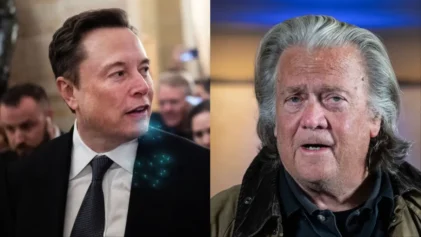The company planning to build the Byhalia Connection pipeline announced plans to ditch the project on Friday after the mostly Black south Memphis community put up a persistent fight against the project, believing it would expose residents to environmental risks.
“The stars aligned for this fight,” said Ward Archer, founder of Protect Our Aquifer. “Sometimes the good guys win and this is one of those times.”

Two companies, Plains All American Pipeline and Valero Energy Corp, came together to form a joint venture, Byhalia Connection LLC, to build the pipeline.
According to a statement, the company is “no longer pursuing the Byhalia Connection construction project primarily due to lower US oil production resulting from the COVID-19 pandemic.”
Two community groups, Memphis Community Against the Pipeline (MCAP) and Protect Our Aquifer, led the rally against the pipeline.
The proposed route for the 49-mile pipeline ran through Mississippi through Boxtown, a primarily African-American community in southwest Memphis, and would connect two existing crude oil pipelines. Plans for the pipeline, which was proposed in December 2019, drew opposition from citizens and Memphis and Shelby County governments.
The company said in the statement, “We value the relationships we’ve built through the development of this project, and appreciate those that supported the project and would have shared in its ongoing benefits including our customers, communities, energy consumers, landowners, area contractors, and suppliers.”
Opponents of the pipeline had expressed concern over oil spills and threats to the drinking water in the area, which is drawn from wells that tap the Memphis Sand aquifer pristine groundwater resource. Former Vice President Al Gore characterized the proposed pipeline as “a reckless, racist ripoff.”
The Southern Environmental Law Center represented community groups in the legal fight against the pipeline in an attempt to get state and federal permits thrown out. In one legal battle against the pipeline, plaintiffs argued that the company didn’t have the legal right to gain access to private property against the property owners’ wishes, although the suit was thrown out and the work toward the pipeline was permitted to continue.
“The cancellation of the Byhalia Pipeline is a victory for the people of Southwest Memphis, for the city’s drinking water, and perhaps most monumentally, it a triumph for environmental justice,” said SELC Tennessee Office Director Amanda Garcia. “We are so inspired by the people of Boxtown, Westwood, and White Chapel, and the work of our amazing partners MCAP and Protect Our Aquifer, for showing what is possible when a community stands together.”
According to the SELC, the pipeline would have passed through Boxtown, a mostly Black community “named after formerly enslaved people used scraps of wood and metal from train boxcars to build their homes.” One project representative referred to south Memphis as a “point of least resistance,” which offended many Black residents.
A 2013 study identified the area as an air pollution hotspot because of the quantity of industries and emission sources, and noted that the cumulative cancer risk in Southwest Memphis “was four times higher than the national average.”


